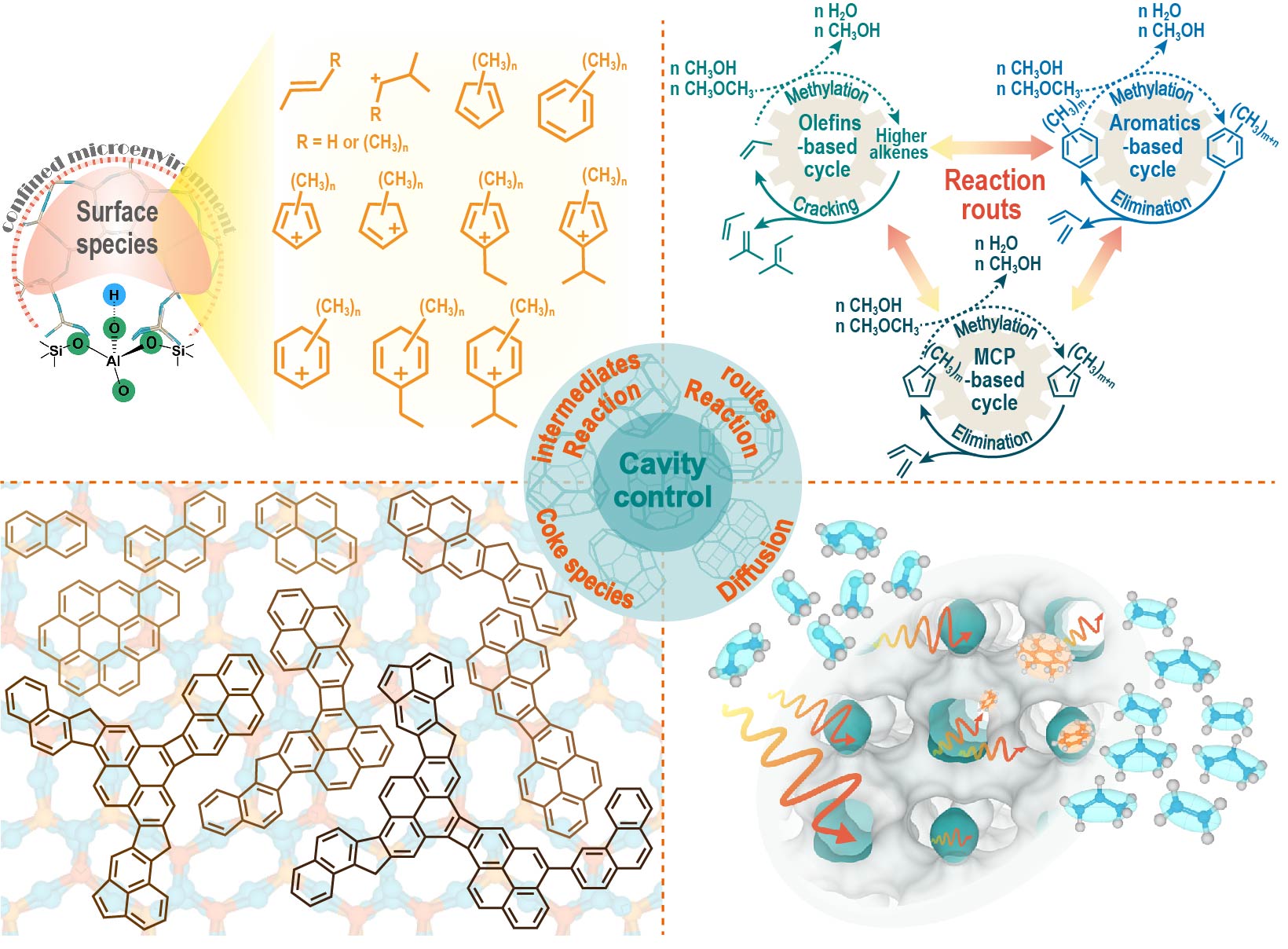Recently, the research team led by Profs. LIU Zhongmin and WEI Yingxu (from National Engineering Research Center of Lower-Carbon Catalysis Technology, Dalian Institute of Chemical Physics(DICP) of the Chinese Academy of Sciences (CAS)) reviewed the cavity-controlled principle in zeolite-catalyzed methanol-to-olefins reaction. This article was published in National Science Review.

Methanol-to-olefins (MTO) process, an innovative and efficient route for olefin production via non-petrochemical resources, has achieved successful development and application in industry and attracted attentions of C1 chemistry and zeolite catalysis in the fundamental research. Dalian Institute of Chemical Physics (DICP) developed DMTO technology that can produce olefins from coal through methanol, which has achieved considerable success in economic income and technological innovation, launching a new era of sustainable olefin manufacturing from non-oil resources. Since then, DICP has created the second and third generations of the DMTO process (DMTO-II and DMTO-III), which are becoming the important routes for the production of ethene and propene in China. In order to maintain the competitiveness and sustainability of the emerging coal chemical industry, the comprehensive and in-depth understanding of the fundamentals and selective control principles of the catalytic reaction process must be continually deepened to support the development of new catalyst materials and process technique.
This review sheds light on the cavity-controlled principle in the methanol-to-olefins reaction. Cavity-controlled methanol conversion reaction behavior, cavity-controlled formation of the hydrocarbon pool species and reaction pathway, cavity-controlled catalyst deactivation and diffusion behavior, and the inspired controlled strategies are reviewed in this review.
Furthermore, combined with the multiscale and dynamic properties of reaction and catalytic materials inthe MTO reaction, the authorsproposed the cross-talk mechanism of catalyst material (coke)-reaction-diffusion to reveal the real shape-selective catalysis with interactive behaviors and mechanism in cavity-type zeolite catalyzed MTO reactions. Based on the understanding of cavity-controlled principle, a variety of control strategies, such as modification of the cavity and acidity of zeolite catalysts, pre-coking of fresh catalyst and partial regeneration of the coked catalyst were summarized. In the future, the technical innovation of the MTO process will require accurate control of reaction, coke formation and diffusion in the confined cavity microenvironment to achieve enhanced catalyst stability and product selectivity in the industrial process.
The review entitled “Cavity-controlled methanol conversion over zeolite catalysts” was published in National Science Review.This work was supported by the National Natural Science Foundation of China, the National Key R&D Program of China and the Liaoning Provincial Natural Science Foundation of China.(Text by ZHANGWenna)
Cavity-controlled methanol conversion over zeolite catalysts, Wenna Zhang, Shanfan Lin, Yingxu Wei*, Peng Tian, Mao Ye, Zhongmin Liu*.National Science Review, 10 (9), 2023.